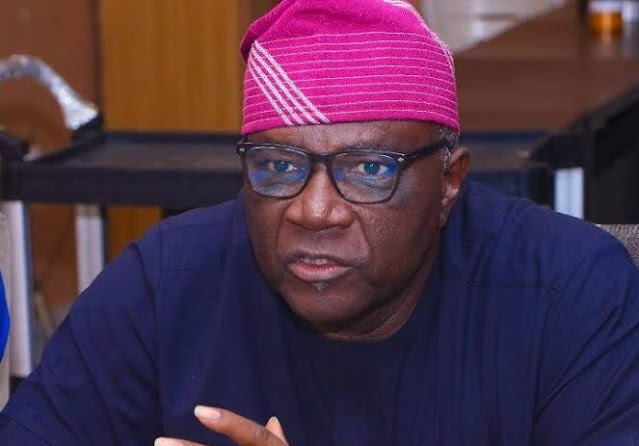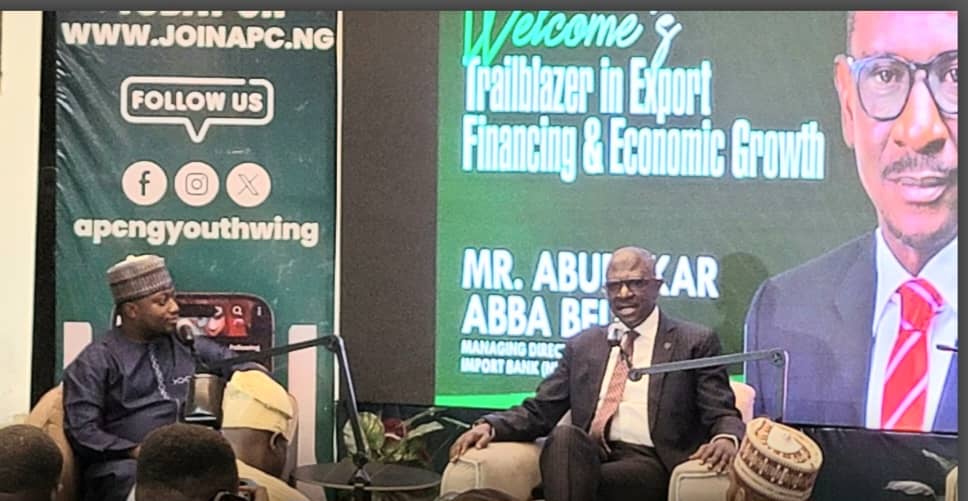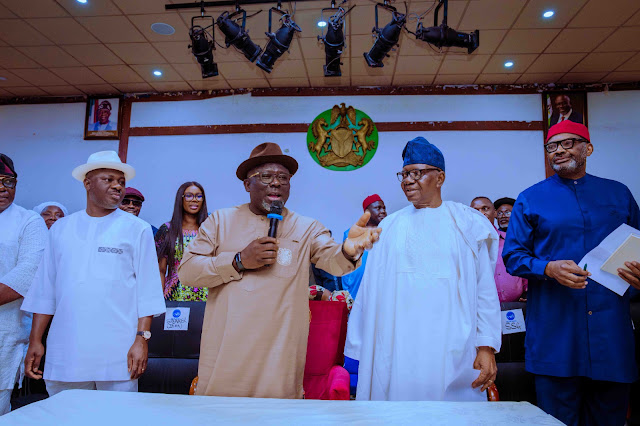In a bold move to address Nigeria’s longstanding economic challenges, President Bola Ahmed Tinubu’s administration has implemented a series of transformative reforms aimed at stabilizing and strengthening the naira, Nigeria’s national currency. These reforms, particularly in the foreign exchange (FX) market, have been hailed by the presidency as a cornerstone of Nigeria’s economic recovery, positioning the naira as a competitive tool for export-driven growth. According to a statement by Ajuri Ngelale, Special Adviser to the President on Media, Tinubu’s multifaceted approach to eliminating FX racketeering and promoting transparency has yielded significant results, with the naira rebounding from a low of ₦1,800 per dollar in March 2024 to ₦1,525 per dollar by August 2025. This article explores the intricacies of these reforms, their impact on the naira, the broader economic implications, and the challenges and criticisms they have faced, while critically examining the narrative surrounding their success.
The Context: Nigeria’s Economic Challenges and the Need for Reform
Nigeria, Africa’s most populous nation and largest economy, has long grappled with economic volatility, driven by its dependence on oil exports, a rigid foreign exchange regime, and pervasive corruption in the financial sector. For decades, the Central Bank of Nigeria (CBN) maintained an artificially propped-up naira through multiple exchange rate windows, a system that drained foreign reserves and discouraged foreign investment. This regime, coupled with fuel subsidies costing billions annually, created distortions that stifled economic growth and fueled inflation. By May 2023, when Tinubu assumed office, Nigeria faced a daunting economic landscape: foreign reserves were dwindling, inflation was soaring, and the naira was under severe pressure, trading at approximately ₦450 per dollar in January 2023 but plummeting to ₦1,035 by December of the same year.
Tinubu’s administration inherited an economy described as “ailing” by analysts, with a budget deficit of ₦10.8 trillion as of June 2023 and external debt accounting for 39% of the total public debt stock of ₦97.34 trillion ($108 billion). The removal of fuel subsidies and the liberalization of the foreign exchange market were among the most contentious yet necessary reforms introduced to address these structural issues. These policies, while painful in the short term, were designed to correct decades of economic mismanagement and set Nigeria on a path to sustainable growth.
The Reforms: A Multi-Faceted Approach
At the heart of Tinubu’s economic agenda is a comprehensive strategy to eliminate FX racketeering, unify exchange rate windows, and boost investor confidence. The presidency, through Ngelale, has emphasized that these reforms are not merely reactive but part of a deliberate recalibration to make the naira a tool for national competitiveness. Below is a detailed examination of the key components of these reforms:
Unification of Foreign Exchange Windows
One of the most significant reforms was the dismantling of Nigeria’s multiple exchange rate system in 2024. Previously, the CBN operated parallel rates—official, parallel (black market), and preferential rates for select sectors—creating opportunities for arbitrage and corruption. The unification of these windows into a single, transparent market rate allowed the naira to find its realistic value, determined by market forces rather than artificial interventions. This move, while initially leading to a sharp depreciation of the naira to ₦1,800 per dollar in March 2024, was a critical step toward restoring credibility to Nigeria’s FX market.
Clearing Foreign Exchange Backlogs
The administration prioritized clearing over $4 billion in foreign exchange backlogs, which had accumulated due to unmet dollar demands by businesses and investors. This backlog had eroded trust in Nigeria’s financial system, deterring foreign direct investment (FDI) and exacerbating currency scarcity. By May 2025, the CBN had successfully cleared these backlogs, signaling to global markets that Nigeria was committed to honoring its financial obligations. This action was instrumental in restoring investor confidence and stabilizing the naira.
Central Bank Interventions in the Parallel Market
The CBN, under Tinubu’s directive, implemented targeted interventions to stabilize the naira in both official and parallel markets. For instance, on February 27, 2024, the CBN sold $20,000 to each Bureau de Change (BDC) at ₦1,301 per dollar, a significant reduction from the parallel market rate of ₦1,650. Subsequent interventions on March 25 and April 8, 2024, saw the CBN allocate dollars at ₦1,251 and ₦1,101 per dollar, respectively, further narrowing the gap between official and parallel rates. These measures contributed to the naira’s resurgence, closing at ₦1,120 per dollar in the parallel market and ₦1,230.61 in the official window by April 8, 2024.
Policy Support for Naira Recovery
The CBN introduced additional policies to support naira stability, including directives to banks to pay dollar transactions through international money transfer operators (IMTOs) in naira and prohibiting the use of foreign currency-denominated collaterals for naira loans. These measures aimed to reduce speculative trading and enhance liquidity in the FX market. By August 2025, Nigeria’s foreign exchange reserves had risen by $200.45 million to $33.72 billion, reflecting improved market conditions.
Tax and Fiscal Reforms
Complementing the FX reforms, Tinubu signed four finance bills into law in June 2025, restructuring Nigeria’s tax system to support low-income households and small businesses. These reforms eliminated Value Added Tax (VAT) on essential goods like food, healthcare, and education, reduced corporate tax rates from 30% to 27.5% in 2025 (and 25% thereafter), and introduced tax credits for businesses. The Nigeria Tax Act consolidated over 50 small, overlapping taxes into a single, streamlined code, easing the burden on businesses and improving revenue collection efficiency.
The Impact: A Strengthening Naira and Export Boom
The results of these reforms have been significant, though not without controversy. By August 2025, the naira had strengthened by 15.28% from its low of ₦1,800 per dollar to ₦1,525 per dollar, an annualized appreciation rate of nearly 48.9%. This recovery was driven by several factors:
Increased Oil Receipts: Higher global oil prices and efforts to curb oil theft boosted Nigeria’s oil revenues, a critical source of foreign exchange. Tinubu’s pledge to increase oil production from 1.39 million barrels per day to 2.6 million by 2027 further supported this trend.
Swelling Diaspora Remittances: The transparent FX market and improved investor confidence encouraged diaspora Nigerians to send more funds home, bolstering foreign exchange inflows.
Export Surge: The naira’s depreciation initially made Nigerian goods cheaper on the global market, driving an export boom. For exporters, the higher naira value of their dollar earnings enabled reinvestment in value-added processing, such as turning raw cocoa into chocolate bars and sesame into bottled oil. This surge pumped foreign exchange back into the system, reinforcing naira stability without eroding its competitiveness.
The presidency describes this as a “virtuous cycle”: FX reforms led to a realistic naira, which made Nigerian goods competitive, driving exports and FX inflows, which in turn stabilized the naira and attracted further investment. Tanimu Yakubu, Director-General of the Budget Office of the Federation, noted, “If Nigeria stays the course, the naira’s recovery won’t just be about exchange rates—it will be the story of an economy finally learning how to turn its currency into a competitive weapon on the world stage.”
Broader Economic Implications
The strengthening naira has far-reaching implications for Nigeria’s economy:
Investor Confidence: The reforms have attracted over $50 billion in investments, with foreign portfolio inflows picking up due to a more predictable FX market. This has bolstered Nigeria’s foreign reserves and reduced the risk premium for investors.
Price Stability: The presidency claims that the stronger naira is paving the way for lower prices of goods, as import costs decrease. However, this remains a point of contention, as inflation continues to challenge affordability for many Nigerians.
Export-Driven Growth: By making Nigerian goods more competitive, the reforms have positioned the naira as an “export engine,” reducing reliance on oil and diversifying foreign exchange earnings. Agencies like the Nigerian Export-Import Bank (NEXIM) are supporting this shift, though challenges like inadequate resources and corruption persist.
Poverty Reduction Initiatives: The administration has launched programs like the Renewed Hope Ward Development Programme (RHWDP), aimed at grassroots economic growth, alongside cash transfers to three million families and support for 400,000 students and 500,000 farmers. These initiatives are presented as evidence of Tinubu’s commitment to addressing poverty, though their scale and impact remain under scrutiny.
Challenges and Criticisms
Despite the reported successes, Tinubu’s reforms have faced significant criticism, particularly for their short-term social costs:
Cost of Living Crisis: The removal of fuel subsidies and naira devaluation triggered Nigeria’s worst cost of living crisis in nearly 30 years, pushing millions deeper into poverty. Inflation surged, rendering a recent minimum wage increase from ₦30,000 to ₦70,000 largely ineffective. Critics, including Human Rights Watch, argue that compensatory measures like cash transfers (reaching only 1.7 million of a promised 15 million people by December 2023) have been inadequate.
Lack of Transparency: The government’s promise to redirect savings from fuel subsidy removal to public infrastructure has been met with skepticism, as there has been no clear accounting of these funds. High-profile expenditures, such as the purchase of a presidential jet, have fueled public outrage over misplaced priorities.
Implementation Risks: Economist Emmanuel Idenyi warns that overzealous enforcement of tax reforms could undermine their benefits, as tax officials often impose additional assessments that burden businesses. Successful implementation depends on building awareness and trust, which remains a challenge.
Political Opposition: The reforms have galvanized opposition, with figures like Atiku Abubakar and Peter Obi forming a coalition under the African Democratic Congress (ADC) to challenge Tinubu in 2027. They argue that the economic hardship caused by these policies reflects a failure to prioritize citizens’ welfare.
Critical Analysis: Beyond the Establishment Narrative
While the presidency and aligned sources paint a rosy picture of the naira’s recovery, a critical examination reveals a more nuanced reality. The reported 15.28% strengthening of the naira is impressive, but it follows a dramatic 50% depreciation in 2023, meaning the currency remains weaker than pre-reform levels. The export boom, while promising, is heavily reliant on raw commodities like cocoa and sesame, with limited evidence of large-scale value-added processing taking root. Moreover, the partial resumption of fuel subsidies in late 2023 undermines the narrative of unwavering reform, suggesting a pragmatic retreat in response to public pressure.
The emphasis on investor confidence and foreign reserves growth overlooks the persistent challenges of insecurity, power shortages, and corruption, which continue to deter sustainable investment. The claim that prices are dropping, as stated by Sunday Dare, lacks corroboration from everyday Nigerians, who face soaring costs for basic necessities. Additionally, the reliance on oil receipts for FX inflows highlights Nigeria’s ongoing vulnerability to global oil price fluctuations, despite efforts to diversify exports.
The Road Ahead
Tinubu’s reforms have undeniably set Nigeria on a path toward greater economic competitiveness, with the naira’s recovery and export growth serving as early indicators of success. However, the administration must address the social fallout of these policies to maintain public support. Expanding and transparently implementing compensatory programs, such as cash transfers and infrastructure investments, will be critical to mitigating hardship. The government must also tackle structural issues like oil theft, power shortages, and corruption to sustain the export-driven growth model.
Politically, Tinubu faces a delicate balancing act. The opposition’s coalition-building efforts signal a challenging 2027 election, and the administration’s ability to deliver tangible economic benefits will determine its electoral prospects. For the PDP and other opposition parties, the reforms provide both an opportunity to critique Tinubu’s governance and a challenge to articulate a viable alternative vision.
Conclusion
President Tinubu’s economic reforms, particularly in the foreign exchange market, have positioned the naira as a tool for Nigeria’s economic transformation. The unification of FX windows, clearance of backlogs, and CBN interventions have driven a 15.28% appreciation of the naira by August 2025, alongside an export boom that promises long-term growth. However, the reforms’ success is tempered by significant challenges, including a severe cost of living crisis, inadequate compensatory measures, and lingering structural inefficiencies. As Nigeria navigates this transformative period, the Tinubu administration must balance bold economic restructuring with tangible relief for its citizens to ensure that the naira’s recovery translates into broader prosperity. The coming years will test whether these reforms can truly turn Nigeria’s currency into a “competitive weapon on the world stage” or if they will falter under the weight of public discontent and systemic challenges.





